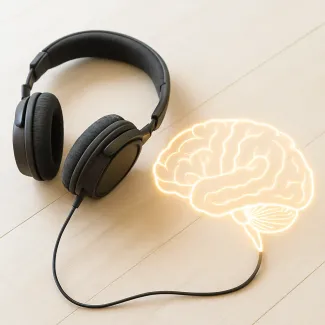
Unlocking Mental Wellness Through the Power of Journaling
Simple daily writing practices that calm your mind and energize your body
The science behind expressive writing and emotional regulation
Writing down your thoughts is more than just putting words on paper — it’s a proven technique that supports emotional stability and physical well-being. Studies in psychology and neuroscience show that expressive writing can lower cortisol levels, reduce anxiety, and even improve immune function. When we externalize our inner narratives, we gain clarity, reduce emotional overload, and allow our minds to process difficult experiences more healthily.
Writing accesses the prefrontal cortex, the area responsible for decision-making and emotional regulation. By engaging this part of the brain regularly, journaling helps to restructure thought patterns, making us more resilient in times of stress.
How journaling reduces chronic stress and boosts resilience
Stress builds silently, often without obvious triggers, leading to chronic fatigue, irritability, and poor sleep. Journaling offers a structured outlet for this internal pressure. Whether it’s a gratitude list, a daily check-in, or free-flowing reflections, consistent writing habits help reduce the physiological effects of stress.
Journaling slows down the mind, shifts attention from ruminating to reflecting, and stimulates the parasympathetic nervous system, which is essential for relaxation. Over time, this leads to lower heart rate, better digestion, and more restful sleep.
Recommended journaling prompts for stress relief
- What made me feel tense today, and why?
- What can I let go of that I’m holding too tightly?
- Three things I’m grateful for right now
- How can I be kinder to myself today?
The link between writing and physical health improvements
Many people are surprised to learn that journaling supports not only mental health, but also physical healing. Expressive writing has been shown to reduce inflammation, lower blood pressure, and support immune response, especially in individuals recovering from illness or trauma.
This is due to journaling’s ability to decrease stress-related hormones, which in turn helps the body allocate resources more effectively for healing and regeneration.
Mental clarity and improved decision-making through journaling
By regularly sorting thoughts on paper, individuals report better mental organization, reduced decision fatigue, and improved problem-solving skills. It becomes easier to identify priorities, let go of distractions, and focus on what truly matters.
When thoughts are trapped in the mind, they swirl endlessly. Journaling helps to externalize clutter, which reduces mental overload and opens space for new insights.
Daily habits to enhance cognitive benefits
- Write in the same place and time each day
- Avoid screens for at least 30 minutes before or after writing
- Start with 5 minutes — consistency beats duration
- Use physical notebooks to reduce digital distractions
Emotional intelligence and self-awareness through reflective writing
Journaling promotes emotional literacy. By naming emotions and exploring their roots, we become more self-aware and better equipped to manage relationships. This kind of writing helps us to observe our triggers, build empathy, and cultivate self-compassion.
It also reduces emotional reactivity, enabling us to respond rather than react. Over time, this leads to stronger boundaries, more stable moods, and a deeper sense of self-trust.
Journaling as a daily mindfulness ritual
Integrating journaling into your routine brings the benefits of mindfulness without needing to sit in silent meditation. Writing is an active practice that anchors us in the present moment.
By paying attention to thoughts, sensations, and feelings while writing, journaling becomes a form of active meditation, grounding us in now instead of dwelling on the past or fearing the future.
How to build a mindful journaling routine
- Light a candle or use a calming scent to set the tone
- Begin by noticing your breath or body
- Use a soft focus, writing without overthinking
- End with a single sentence of intention or hope
The role of gratitude journaling in mental and emotional balance
Gratitude journaling is one of the simplest yet most transformative practices for emotional health. By listing what we’re thankful for each day, even small things, we rewire the brain to notice the positive.
This boosts dopamine and serotonin levels — neurotransmitters that regulate mood and motivation. In time, gratitude journaling helps shift the mind away from scarcity thinking and toward abundance and contentment.
Supporting sleep quality and reducing nighttime anxiety
For many, the most stressful time is right before bed — when the mind races with unresolved thoughts. Journaling before sleep helps to clear the mind, process worries, and set a more peaceful tone for rest.
Studies show that even 10 minutes of writing before bed can shorten the time it takes to fall asleep, increase REM sleep, and reduce nighttime awakenings.
Evening journaling techniques to try
- Brain dump: Write down everything on your mind without judgment
- “What I did well today” to reinforce self-confidence
- Affirmations to end the day with kindness and hope
Strengthening the immune system through expressive writing
While it may seem surprising, consistent journaling has a measurable effect on immune system markers, especially in people with chronic stress. Expressive writing promotes lymphocyte activity, a key part of immune defense.
Journaling also reduces the number of doctor visits and symptoms of chronic conditions such as asthma, arthritis, and IBS. It works by helping the body return to homeostasis, where healing naturally takes place.
Enhancing creativity and unlocking inner inspiration
Journaling isn’t just therapeutic — it’s also a tool for creative expression. Free writing, stream-of-consciousness journaling, and idea mapping help unlock creative flow and deepen intuition.
This opens access to insights, inspiration, and a renewed sense of purpose. Creativity is deeply healing and essential for mental wellness — and journaling makes it accessible, no matter your artistic background.
Tools and formats to support your journaling habit
There’s no one right way to journal — the key is to find a format that fits your lifestyle. Some prefer bullet journals, others traditional lined notebooks or digital apps. What matters is consistency and authenticity.
Explore different styles:
- Morning pages (write three pages of anything upon waking)
- Prompt-based journaling (guided questions)
- Mood trackers
- Visual journaling (sketches, collages)
Choose the one that invites regular reflection and feels enjoyable to maintain.
Journaling and its impact on emotional trauma recovery
Writing offers a safe container to explore painful memories and process past experiences. For individuals healing from trauma, journaling can be a bridge between internal pain and external expression.
Trauma lives in the body, but writing helps translate it into language, which is essential for integration and release. Many therapists now recommend journaling as part of trauma-informed care because it supports emotional regulation, self-validation, and post-traumatic growth.
Helping teens and adults develop emotional resilience
Journaling isn’t just for adults in crisis — it’s a practice that can benefit teens, young adults, and people navigating life transitions. Teaching younger generations how to process emotions through writing builds resilience early on.
It’s especially helpful during periods of identity formation, such as college years or midlife. Journaling provides a non-judgmental space for exploring goals, fears, and evolving self-concepts.
Creating safe emotional spaces through journaling
A private journal becomes a sanctuary — a space free of judgment, performance, or external expectations. It invites honesty, which is the first step toward healing emotional wounds.
By building a habit of radical self-expression, we can gently unravel complex emotional knots and begin the journey toward self-acceptance.
Building long-term mental health with consistency
Consistency in journaling has a compounding effect. Over time, it builds a record of progress, moments of joy, and patterns in emotional states. This allows for self-reflection, emotional tracking, and greater self-knowledge.
Even writing just a few lines a day can create significant mental shifts when practiced over months or years. The goal isn’t perfection, but presence — to simply show up for yourself on the page.
Supporting hormonal balance and emotional cycles through writing
For individuals affected by hormonal fluctuations, journaling provides insight into emotional patterns tied to cycles such as menstruation, menopause, or thyroid imbalance. Recording moods, energy levels, and symptoms helps uncover patterns that empower better choices in daily life.
This is especially useful for those navigating perimenopause, PMS, or fertility-related stress. Journaling brings body awareness, supports emotional balance, and fosters a sense of control.
Group journaling and community-based wellness practices
Journaling doesn’t have to be solitary. Group journaling sessions, writing workshops, or therapeutic writing circles can deepen the practice. These spaces build empathy, connection, and shared healing — especially for individuals who thrive in community settings.
Collective writing supports mental well-being, encourages vulnerability, and reduces feelings of isolation.
Digital tools and journaling apps that enhance your routine
While pen and paper offer a tactile experience, digital journaling tools can enhance accessibility and tracking. Many apps offer mood tracking, voice-to-text entries, and daily prompts to encourage engagement.
Popular options include:
- Day One
- Journey
- Reflectly
- Stoic
- Grid Diary
Choose a platform that aligns with your personality — whether you prefer structure, spontaneity, or analytics.
Journaling as an act of self-care and inner alignment
Ultimately, journaling is a form of self-care — a ritual that centers your emotions, honors your experiences, and grounds you in self-awareness. It offers a moment of stillness in a chaotic world and opens a path toward deeper well-being.
When you write, you listen. And in that listening, you begin to heal.





